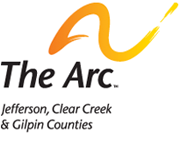Understanding Individual Advocacy

Individual advocacy at The Arc is designed to assist individuals with intellectual and developmental disabilities (IDD) and their families in understanding their rights and identifying opportunities to pursue and achieve their dreams. It's our goal to empower individuals and families to effectively advocate for themselves.
Eligibility
The Arc's advocates provide general support that is not disability-specific, which means our services are structured around the common disability experience rather than a particular diagnosis. We serve all people with intellectual and developmental disabilities, which is an umbrella term that includes a variety of conditions that impact a person's development throughout their lifetime, such as autism, Down syndrome, cerebral palsy and a variety of other conditions.
Due to our limited resources, we prioritize support for people with IDD, although we do make referrals for anyone who contacts us. Generally speaking, people contacting us about concerns related to learning disabilities or mental health will be referred to other resources unless the individual also has a co-occurring IDD.
Foundations of Individual Advocacy
Our advocacy assistance is provided within the context of current law and other regulations, rules, policies, and best practices. For example, our Education and Family advocates provide guidance based on the parameters of the Individuals with Disabilities Education Act (IDEA), Section 504 of the Rehabilitation Act of 1973, and the Americans with Disabilities Act (ADA), in addition to best practices for special education. Similarly, our Adult Advocacy team also relies on the ADA and other legislation, as well as best practices for promoting independence and opportunity for adults with disabilities within existing regulations.
Although the law is the foundation of our advocacy work, we are not a legal service and do not provide legal advice. Instead, it's our role to empower people with disabilities and their families with the knowledge and resources that will allow them to effectively advocate for themselves.
Our Approach
Our advocates work collaboratively with all parties to achieve the best possible outcomes for the individual with a disability. We use this approach to problem-solving to foster positive working relationships between individuals, families, and our professional partners.
During the initial contact which can be either a phone or e-mail exchange, our advocate will ask questions to get a full picture of your current needs. Once your immediate concerns have been addressed, the advocacy process ends. Should you need further assistance in the future, simply contact your advocate again.
The Arc reserves the right to accept or decline advocacy requests based on professional judgment and available resources. In addition, should the individual or family choose not to follow the agreed upon plan, The Arc also reserves the right to discontinue our engagement around that issue or concern.
Fees
All of The Arc’s services are provided at NO CHARGE, as we don’t want money to be a barrier to opportunity. You may make a donation to offset the cost of advocacy by clicking here.
Limitations
- To avoid duplication of efforts, The Arc does not provide advocacy support if an individual or family is receiving similar assistance from a private advocate, advocacy organization, or attorney.
- The Arc does not provide support to individuals involved in their school district’s Dispute Resolution process, even if the individual or family did not initiate the formal process.
- The Arc does not serve as a Representative Payee.
Types of Advocacy Support
Typically, advocacy falls into two categories of support (determined by your advocate): Information & Referral or Active Support.
INFORMATION & REFERRAL
Many people who contact The Arc have their short-term needs met by receiving:
- Information and referral to community resources
- Information on training opportunities
- Phone consultation for answering specific questions or verifying information
- Phone consultation for guidance on meeting preparation or follow-up
For people in need of this type of support, The Arc’s advocates answer questions like:
- What information can you give a family new to Colorado about community center boards and guardianship options?
- Who do I contact about transportation assistance?
- Where can I learn about eligibility for Social Security and other public programs?
- How does Choice Enrollment into a school work for a student on an Individualized Education Plan (IEP)?
- How do I best prepare for my initial IEP meeting?
Through this quick and efficient exchange of information, people gain vital knowledge to effectively advocate themselves or their loved one with a disability.
ACTIVE SUPPORT
Active Support is a deeper level of engagement reserved for situations when The Arc is asked to act on behalf of the individual with a disability. While information-sharing and referral to other resources may be a component of our assistance, this type of support will typically also include:
- Signing forms allowing third-parties to share information
- Receiving and reviewing documents related to the situation
- Speaking with others on behalf of the person with IDD
- Attending meetings with or about the person with IDD
For parents seeking educational support for their student, this level of engagement is further reserved for situations where the following criteria is met:
- The student is being denied a Free Appropriate Public Education (FAPE) as required by law
- A change of placement (school, classroom, etc.) has not been agreed to by the parent
- Disciplinary concerns including manifestation meetings for suspension/expulsion
- The special education process has been stopped and the student’s IEP team is no longer functioning effectively


